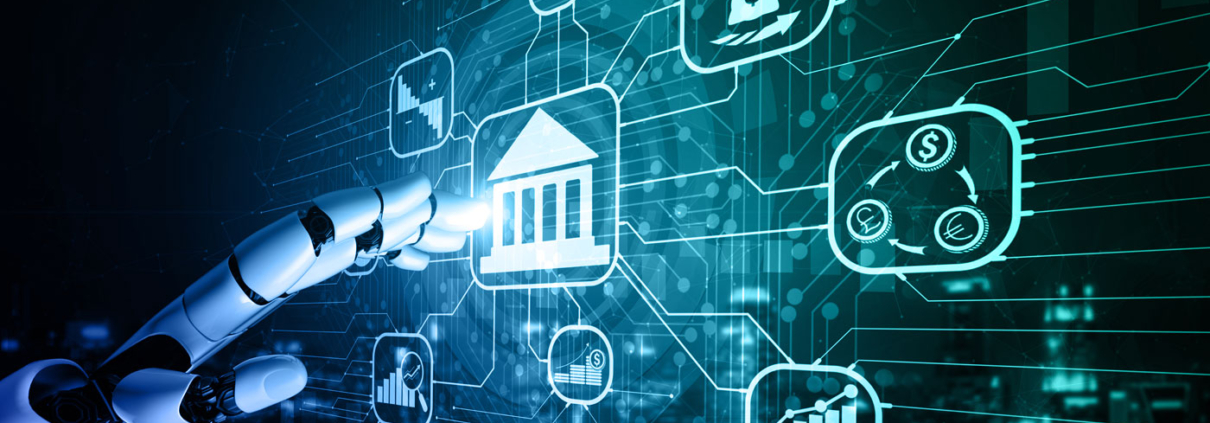AI’s Impact: A Look at Sectors Revolutionized by Technology
In today’s fast-paced world, artificial intelligence is no longer a concept from science fiction. It’s a present-day reality that is fundamentally reshaping how we live, work, and interact with the world around us. The ability of intelligent systems to process vast amounts of data, recognize patterns, and make informed decisions is driving profound change across countless industries. This article explores how AI, a powerful technology is transforming business, healthcare, education, gaming, and entertainment.
AI in Business: Driving Efficiency and Innovation
AI is fundamentally reshaping modern business operations, from automating tasks to gaining strategic insights. AI in business helps companies improve efficiency, reduce costs, and create more personalized experiences for their customers.
- Customer Service: AI-powered chatbots and virtual assistants handle routine customer inquiries 24/7. This frees human agents to focus on complex issues, improving overall efficiency and customer satisfaction.
- Data Analysis and Predictive Analytics: Algorithms analyze massive datasets to identify trends and forecast market changes. Businesses use this to optimize supply chains, predict consumer behavior, and identify fraudulent activity.
- Personalization: AI enables hyper-personalization in marketing and sales. It recommends products, tailors content, and personalizes offers based on individual customer preferences and past interactions.
AI in Healthcare: Enhancing Diagnostics and Patient Care
The medical field is undergoing a massive transformation with the integration of AI. AI in healthcare improves diagnostics, accelerates drug discovery, and helps doctors provide personalized care.
- Early Disease Detection: AI tools analyze medical images (X-rays, MRIs, CT scans) with remarkable accuracy, often detecting subtle signs of diseases like cancer earlier than human analysis alone. This leads to earlier intervention and better patient outcomes.
- Drug Discovery and Development: AI significantly speeds up the drug discovery process. It analyzes vast molecular databases and predicts how compounds will interact, identifying potential drug candidates much faster than traditional methods.
- Personalized Treatment Plans: AI helps doctors create tailored treatment plans. It considers a patient’s genetic makeup and medical history to recommend the most effective therapies for their unique condition.
AI in Education: Empowering Learners and Educators
The classroom is changing, with AI playing a role in creating more accessible and effective learning environments. AI in education provides personalized learning experiences and streamlines administrative tasks for educators.
- Personalized Learning Paths: AI-powered platforms adapt to individual student needs and learning styles. They provide customized content, exercises, and feedback, allowing students to learn at their own pace.
- Intelligent Tutoring Systems: AI tutors offer personalized support, answer questions, and explain complex concepts. They can identify areas where students struggle and provide targeted assistance.
- Automated Grading: AI can automatically grade multiple-choice questions and even provide feedback on essays and coding assignments. This frees up educators’ time and provides students with immediate feedback.
AI in Gaming: Creating Immersive and Dynamic Worlds
AI’s role in gaming has evolved far beyond creating challenging opponents. AI in gaming now focuses on building more immersive, dynamic, and engaging virtual worlds.
- Smarter NPCs (Non-Player Characters): AI makes NPCs more realistic and responsive. They can learn from player actions, adapt their strategies, and engage in more believable interactions, making games more challenging and enjoyable.
- Procedural Content Generation: AI can dynamically generate vast and complex game environments, quests, and storylines. This allows for endlessly replayable games with unique experiences each time.
- Adaptive Difficulty: Games can use AI to adjust the difficulty level in real-time. This keeps players engaged without being overly frustrated or bored, ensuring a balanced experience for all skill levels.
AI in Entertainment: Content Creation and Curation
AI is changing how we create, distribute, and consume content, leading to more personalized and engaging experiences. AI in entertainment helps companies better understand their audiences and deliver content they will love.
- Content Recommendation Engines: Streaming services (Netflix, Spotify) use AI to analyze viewing and listening habits. They then recommend movies, shows, and music that users are most likely to enjoy, significantly improving user engagement.
- Automated Content Creation: AI can assist in various stages of content creation, from generating scripts and composing music to animating characters. While not replacing human creativity, AI serves as a powerful co-creator.
- Enhanced Special Effects: AI algorithms are used in film production to create highly realistic visual effects, de-age actors, and even generate entire scenes, making cinematic experiences more stunning.



Leave a Reply
Want to join the discussion?Feel free to contribute!